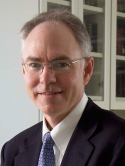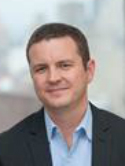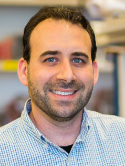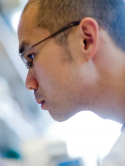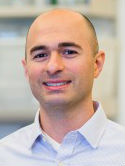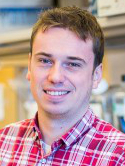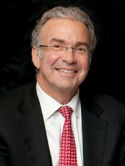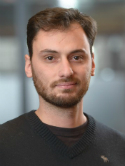ERF mutations reveal a balance of ETS factors controlling prostate oncogenesis Journal Article
| Authors: | Bose, R.; Karthaus, W. R.; Armenia, J.; Abida, W.; Iaquinta, P. J.; Zhang, Z.; Wongvipat, J.; Wasmuth, E. V.; Shah, N.; Sullivan, P. S.; Doran, M. G.; Wang, P.; Patruno, A.; Zhao, Y.; International SU2C/PCF Prostate Cancer Dream Team; Zheng, D.; Schultz, N.; Sawyers, C. L. |
| Contributors: | Vinson, J.; Chen, Y.; Rathkopf, D. E.; Morris, M. J.; Solomon, S. B.; Durack, J. C.; Reuter, V. E.; Gopalan, A.; Gao, J.; Scher, H.; Kantoff, P. |
| Article Title: | ERF mutations reveal a balance of ETS factors controlling prostate oncogenesis |
| Abstract: | Half of all prostate cancers are caused by the TMPRSS2-ERG gene-fusion, which enables androgens to drive expression of the normally silent E26 transformation-specific (ETS) transcription factor ERG in prostate cells1-2. Recent genomic landscape studies of such cancers3-8 have reported recurrent point mutations and focal deletions of another ETS member, the ETS2 repressor factor ERF. Here we show these ERF mutations cause decreased protein stability and mostly occur in tumours without ERG upregulation. ERF loss recapitulates the morphological and phenotypic features of ERG gain in normal mouse prostate cells, including expansion of the androgen receptor transcriptional repertoire, and ERF has tumour suppressor activity in the same genetic background of Pten loss that yields oncogenic activity by ERG. In the more common scenario of ERG upregulation, chromatin immunoprecipitation followed by sequencing indicates that ERG inhibits the ability of ERF to bind DNA at consensus ETS sites both in normal and in cancerous prostate cells. Consistent with a competition model, ERF overexpression blocks ERG-dependent tumour growth, and ERF loss rescues TMPRSS2-ERG-positive prostate cancer cells from ERG dependency. Collectively, these data provide evidence that the oncogenicity of ERG is mediated, in part, by competition with ERF and they raise the larger question of whether other gain-of-function oncogenic transcription factors might also inactivate endogenous tumour suppressors. © 2017 Macmillan Publishers Limited, part of Springer Nature. All rights reserved. |
| Journal Title: | Nature |
| Volume: | 546 |
| Issue: | 7660 |
| ISSN: | 0028-0836 |
| Publisher: | Nature Publishing Group |
| Date Published: | 2017-06-29 |
| Start Page: | 671 |
| End Page: | 675 |
| Language: | English |
| DOI: | 10.1038/nature22820 |
| PROVIDER: | scopus |
| PUBMED: | 28614298 |
| PMCID: | PMC5576182 |
| DOI/URL: | |
| Notes: | Article -- Export Date: 2 August 2017 -- Source: Scopus |
Altmetric
Citation Impact
BMJ Impact Analytics
MSK Authors
Related MSK Work




